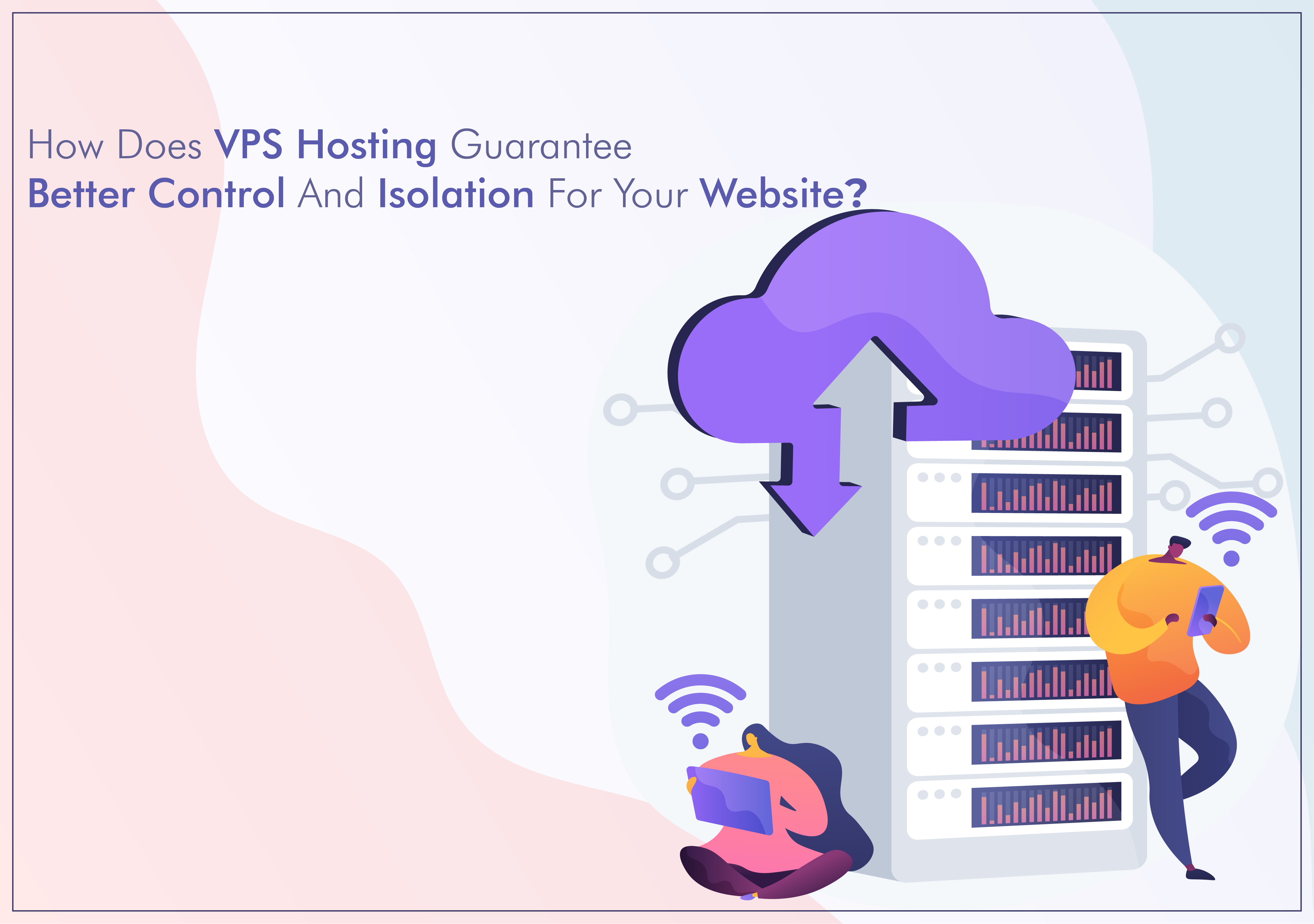
Submitted by admin on

To get your website available online, your files need to be uploaded to a web server that you purchase from a hosting provider. That said, there are a wide variety of options available out there to fit a wide range of needs. For many people with simple websites, a shared hosting account is all they consider because it is cheap and easy, but the resources are limited.
A dedicated server, on the other hand, is powerful and guarantees sole use, but requires a certain level of technical skills to run it.
Once your website starts to experience growing traffic, you may find that shared hosting struggles to deliver the performance you need.
This is where a VPS or a Virtual Private Server could help solve your problems, especially, at a time when the entry cost has never been lower.
In my experience, however, VPS hosting can be a source of confusion for people, especially, beginner business owners searching for a web host for their internet ventures. Here's everything you need to know.
Theoretically, Dedicated Servers offer maximum control over the hosting environment and have the best potential to provide an optimally performing website. That said, Dedicated Servers with adequate resources can be costly. Also, if your site outgrows the available resources, then scaling up can be time-consuming and expensive. This is where VPS Hosting services step in.
A web hosting provider divides a physical hosting server into multiple virtual servers through a server virtualization software called the hypervisor. These virtual servers have account isolation, complete root access, and dedicated resources, making them smaller versions of a Dedicated Server. Since numerous virtual servers exist on one physical server, companies offering VPS Hosting in India charge a low price for the hosting package. Hence, over the last decade, VPS Hosting has evolved as a preferred hosting service for websites. Today, we are going to discuss a specific feature of a VPS – account isolation and understand how a VPS guarantees this for your website.
What Is a VPS, Anyway?
A Virtual Private Server is a machine that resides on a server with other virtual machines.
It is the flexible solution that falls in between a shared server and a dedicated server, in both price and functions.
In layman's terms, the virtual aspect implies one powerful server that is split into multiple separate servers.
The private element means that the virtual server is reserved for your website. This means you won't have to share resources such as RAM, CPU, or storage with other users like you would have to with shared hosting packages.
VPS Hosting – Account Isolation
When the web host uses the hypervisor to create virtual servers, it partitions the underlying hardware. It also allocates resources like CPU, RM, etc. to each virtual server. Further, the hypervisor ensures that even if different virtual servers are executing the same software, it does not access the same physical hardware like RAM and memory caches. It also makes sure that any application running on one virtual server does not impact another server in any way, ensuring complete account isolation.
In VPS Hosting, the virtual servers share the same physical web server. Hence, account isolation is necessary to ensure that there is no interference in the performance of one website due to others. Account isolation allows site owners to customize their virtual server as needed for optimum site performance. It also adds to the security of the VPS; even if one virtual server gets hacked or infected, others remain unaffected.
How Does VPS Hosting Offer Control and Isolation?
A VPS Hosting setup is powered by two important factors – server virtualisation and hypervisor. Server virtualisation allows multiple virtual servers to be set up over a single physical server. It further uses a hypervisor to ensure privacy, isolation and control for each virtual server.
A hypervisor is a piece of software or hardware (a combination of both, sometimes) installed on a physical server. Hypervisors are used to create Virtual Machines (VMs). Each VM acts as an independent machine. The resources to run these VMs come from a central pool, i.e. the single physical server where all VMs are hosted. Each VM is allotted a fixed number of dedicated resources. These resources will then become the VM’s resources. The process is, of course, virtual.
Many VMs can be created on a single server. Each VM is isolated and independent of other VMs in the network. VMs cannot recognise that they’re in a network. So, they work as if they’re an independent machine or an independent server. In VPS Hosting, each VM becomes a website. Thus, VPS Hosting guarantees dedicated resources, isolation, privacy and control for each website hosted.
Isolation Using IP Address
Since every virtual server has dedicated resources, complete root access, and account isolation, web hosts allot separate IP addresses to each VPS. It ensures further separation as it annuls codependency due to the IP address. In shared server plans where user accounts are not isolated, if one user sends unsolicited emails, he can get the IP address blocked, impacting all users on the server since the IP address is shared too. Hence, due to one user’s fault, the rest of the users on the server will also be unable to send essential emails. In VPS Hosting, since each VPS has an independent IP address, it helps in isolating users from each other.
Why You Need VPS Hosting?
VPS hosting emulates a dedicated hosting environment even though you are still sharing the physical server with other users.
The physical web server used by your hosting provider boot normally, and then uses software to boot each VPS server individually using virtualization technology.
This type of hosting can be compared to owning an apartment within a building occupied by other residents.
Every person gets a fraction of the building (in this case, disk space, memory, CPU, and bandwidth), but only you get full access to your apartment (full root access to your VPS).
This guarantees a certain percentage of resources to each individual user, which means what is inside your space (VPS) is yours alone, and no one else can use, access, or take it.
Conclusion
Remember, account isolation is what makes a cheap vps server function as a Dedicated Server. Hence, if you are looking for a Dedicated Server-like hosting environment at a lower cost, then a VPS Hosting plan is your best option. Further, account isolation also ensures better security of your account compared to most traditional hosting services. If you are considering moving to a VPS Hosting plan, then ensure that you research the options available to you and consider all aspects before buying. Good Luck!


Add new comment